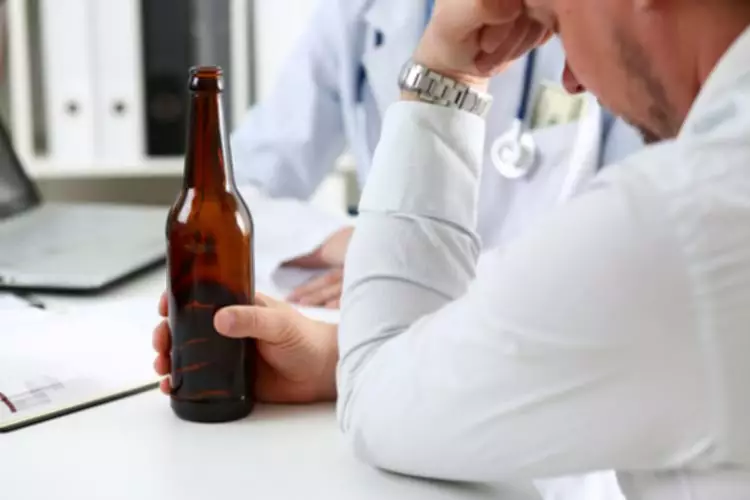
For those with alcohol use disorder, withdrawal is just the first (but very important) step on a long journey to recovery. These first few weeks are critical because they are when the risk of relapse is highest. A rare but very serious syndrome called delirium tremens can occur during alcohol withdrawal. Also known as DTs, an estimated 2% of people with alcohol use disorder and less than 1% of the general population experience them. You don’t need to be diagnosed with alcohol use disorder in order to quit drinking. If alcohol is interfering with your health or your personal, financial, or professional life, consider quitting.
- The goal is to ensure a safe transition from physical dependence on alcohol to a readiness for therapeutic interventions that promote sustained recovery.
- We aim to help our clients regain control over their emotions and create a stable foundation for a healthier, happier life.
- People who develop DTs need specialized care, maybe even in an intensive care unit.
- Alcohol detox can vary based on the severity and duration of the person’s alcohol use.
- In fact, 40 to 60 percent of people recovering from substance addiction relapse at some point according to the National Institute on Drug Abuse — but this doesn’t mean their treatment has failed.
How Long Does It Take for Your Brain to Recover from Alcohol Addiction?
They are enjoying the benefits of their newfound sobriety while taking steps to maintain it in the long term. It’s easy for people to get stuck in the contemplation stage, where they know they need to make a change but just aren’t ready to. Once a person has gone through the uncomfortable process of confronting their addiction and begins to seek out a solution, they will move toward the preparation stage. Alcohol Recovery brings a range of benefits for those on the path to healing. To ensure a successful recovery journey, several key strategies can be instrumental.
Benefits of No Alcohol for One Month

Early sobriety following detoxification is a critical and challenging phase in the recovery process. It’s a time when individuals must navigate through a complex and often uncomfortable transition as their bodies and minds adjust to functioning without alcohol. Research indicates that commitment, support systems, and coping strategies play essential roles during this period.

Coping Strategies for Early Withdrawal
- The first stage is acknowledging that there is a problem and making the decision to seek help.
- AUD recovery focuses on changing or replacing the harmful habit of using alcohol with positive, healthy habits.
- As you can see, one month without alcohol can do a world of good for you.
- In the early stages, these milestones are things like reaching the point of honestly desiring help, beginning not to obsess about alcohol and improved thought processes.
- Regularly attending meetings provides ongoing encouragement, accountability, and a sense of community.
Some people spend their entire weekends sitting at the bar, but consuming alcohol on a daily or weekly basis can have extremely negative effects on the body. Find out in today’s new video that looks at the changes your body goes through when you stop drinking. Alcohol can cause depression, and in some cases, depression can cause alcoholism. When you are depressed, you may feel tempted to self-medicate with alcohol. This will make problems easier to deal with in the short term, but in the long term, it can lead to social isolation, financial troubles, and an overall increase in depression symptoms.
You will also start to develop coping mechanisms for dealing with stress and cravings. This is an important step in the process of overcoming alcohol addiction as it helps to build confidence that you can abstain from alcohol in the future. With commitment and the right resources, the path to a healthier, alcohol-free life becomes achievable.
- This can be done through support group meetings, blog posts, or even casual conversations with friends and family.
- People may try to curb their alcohol addiction on their own during this stage and put off acquiring professional treatment.
- Since the brain learns repeated habits, it can result in development of an addiction.
- Delirium tremens(DTs), or “alcohol withdrawal delirium,” is one of the more extreme symptoms that can occur after quitting alcohol.
- After an entire year sober from alcohol, you may notice that you’ve lost a significant amount of body fat.
Additionally, rewarding oneself for alcohol recovery timeline achieving milestones in sobriety serves as a powerful motivational tool, reinforcing the positive behaviors essential for long-term recovery. Excessive alcohol consumption poses immediate risks such as impaired cognitive function and coordination, leading to accidents and injuries. Long-term effects are even more grave, with potential for chronic diseases and irreversible organ damage. The National Institute on Alcohol Abuse and Alcoholism (NIAAA) reports millions of adults and adolescents are affected by AUD, signifying a significant public health concern. Recovery from AUD is marked by stages of abstinence, withdrawal, repair, and growth. While the process may take several years, the outcome is a happier, healthier life where you have the freedom to fulfill your full potential.

Recognizing and celebrating your progress can help maintain motivation and reinforce the positive changes you’ve made in your life. Embracing a sober lifestyle Substance abuse doesn’t mean giving up on social activities altogether. Seek out events and gatherings that don’t revolve around alcohol, such as outdoor adventures, cultural experiences, or volunteering opportunities. Many communities also offer sober social groups or events specifically designed for individuals in recovery.
5 Days After Your Last Drink
The National Institute on Alcohol Abuse and Alcoholism (NIAAA) estimates that 29.5 million people have alcohol use disorder (AUD) in the United States. Yet, only about 7.6% of people with AUD receive treatment for their alcohol addiction. Therapies during this period may shift to more intensive cognitive exercises and therapeutic sessions designed to enhance memory retention, focus, and emotional regulation. South Shores Recovery provides world-class alcohol addiction treatment covered by many forms of insurance. Please call South Shores Detox and Recovery to discover how we can help you or your loved one heal.
- Not to mention, the lasting health benefits to the immune system, liver, blood pressure, mental health and much more.
- They believe that the risk of relapse always remains and that the disease requires lifelong treatment.
- Participation in aftercare or continuing care programs is also crucial to mitigate the risk of relapse and to sustain the progress made during detox.
MAT involves the use of medications, such as methadone or buprenorphine, to help manage withdrawal symptoms and cravings. These medications work by blocking the effects of opioids or reducing withdrawal symptoms, allowing individuals to focus on their recovery without experiencing intense cravings or discomfort. Some people who achieve long-term sobriety continue to display the same impulsive and dysfunctional behaviors that they did when they were drinking. Because dry drunks have a high risk of relapse, they are not in the termination phase. Outpatient treatment is best for mild alcohol addictions, and it allows clients to attend doctor and therapy visits while still living at home. Inpatient treatment is best for moderate to severe alcohol addictions or people who have relapsed.

Month 2-3: Positive Effects Are A Sign To Keep Going

During recovery, you’ll experience withdrawal symptoms from the lack of alcohol in your system. People with long histories of alcohol abuse can still recover and become productive members of society. A common saying in AA groups is, “All you have to do is quit drinking and change your whole life!